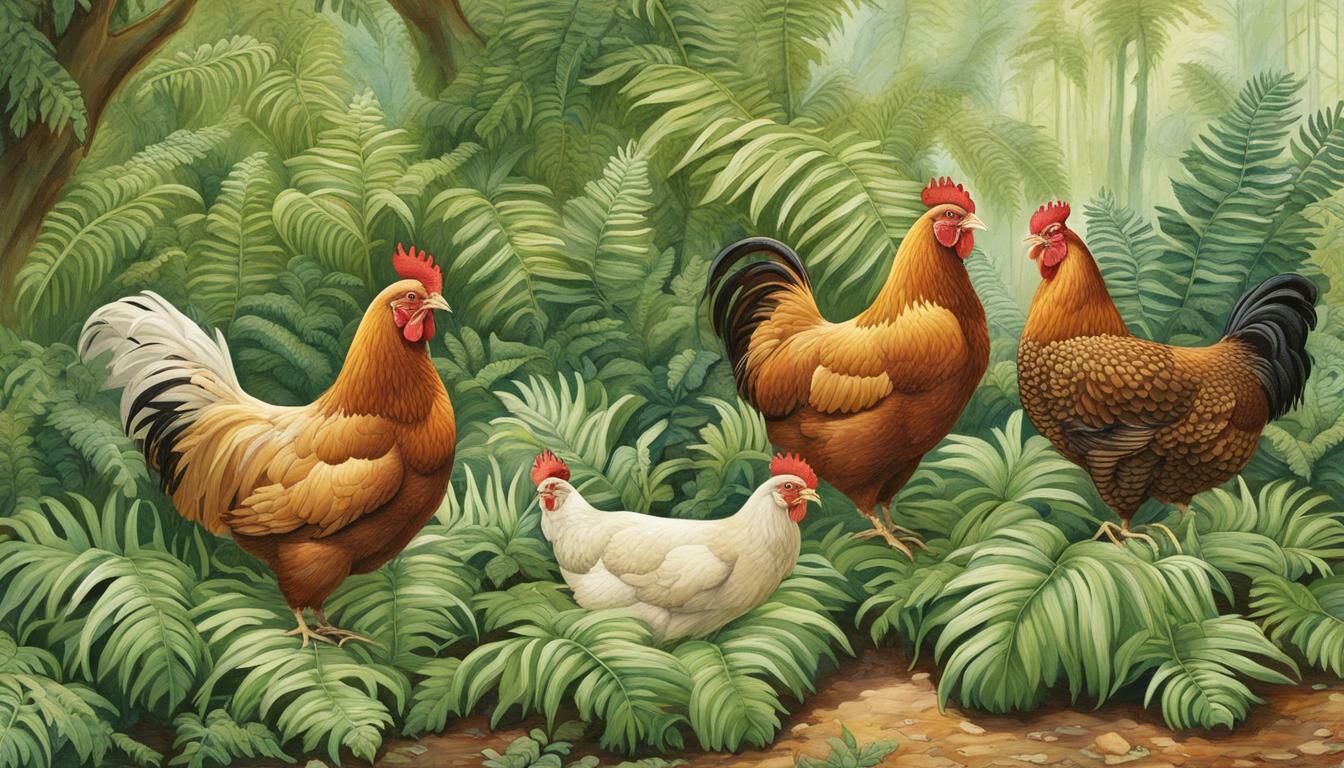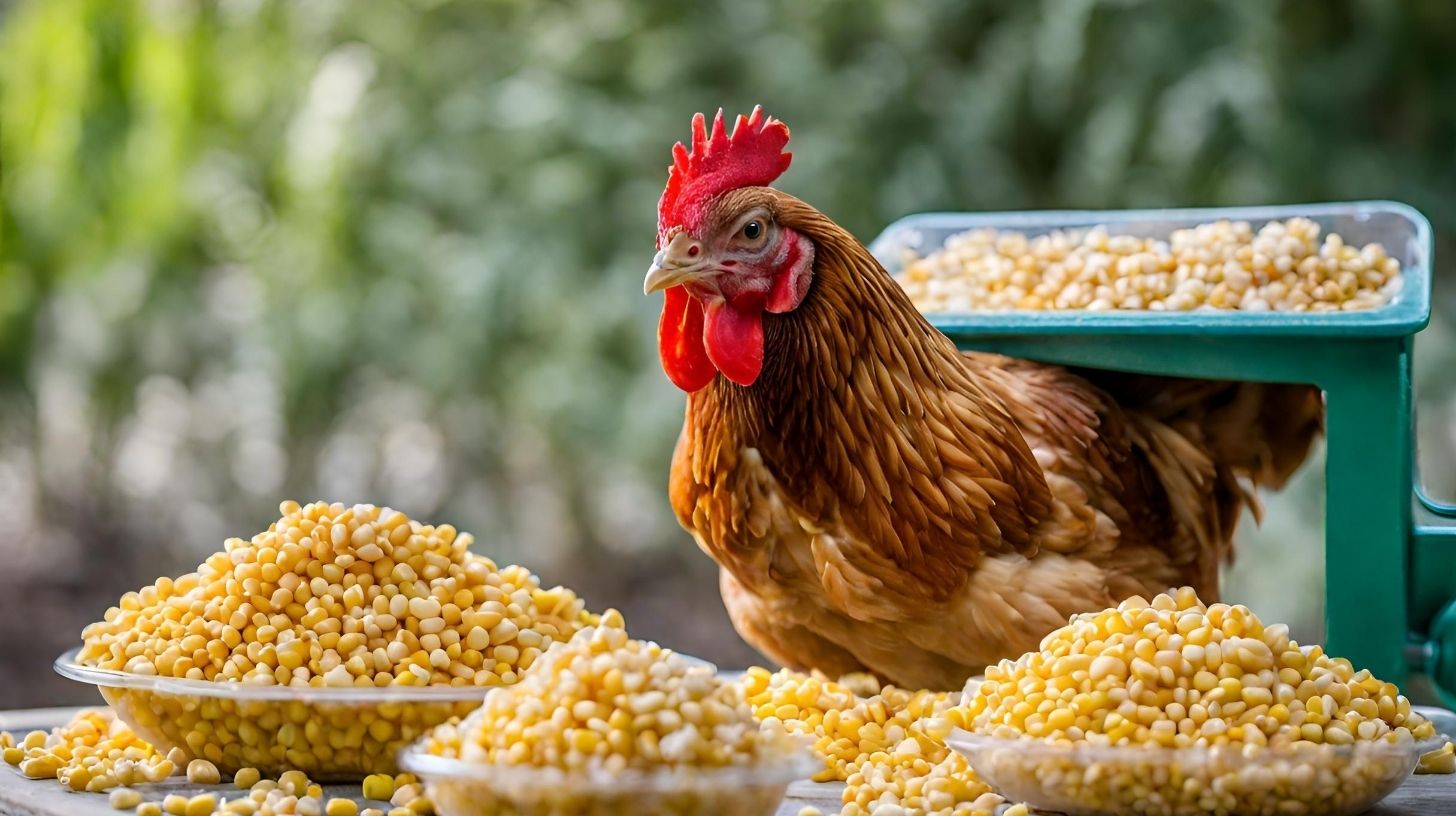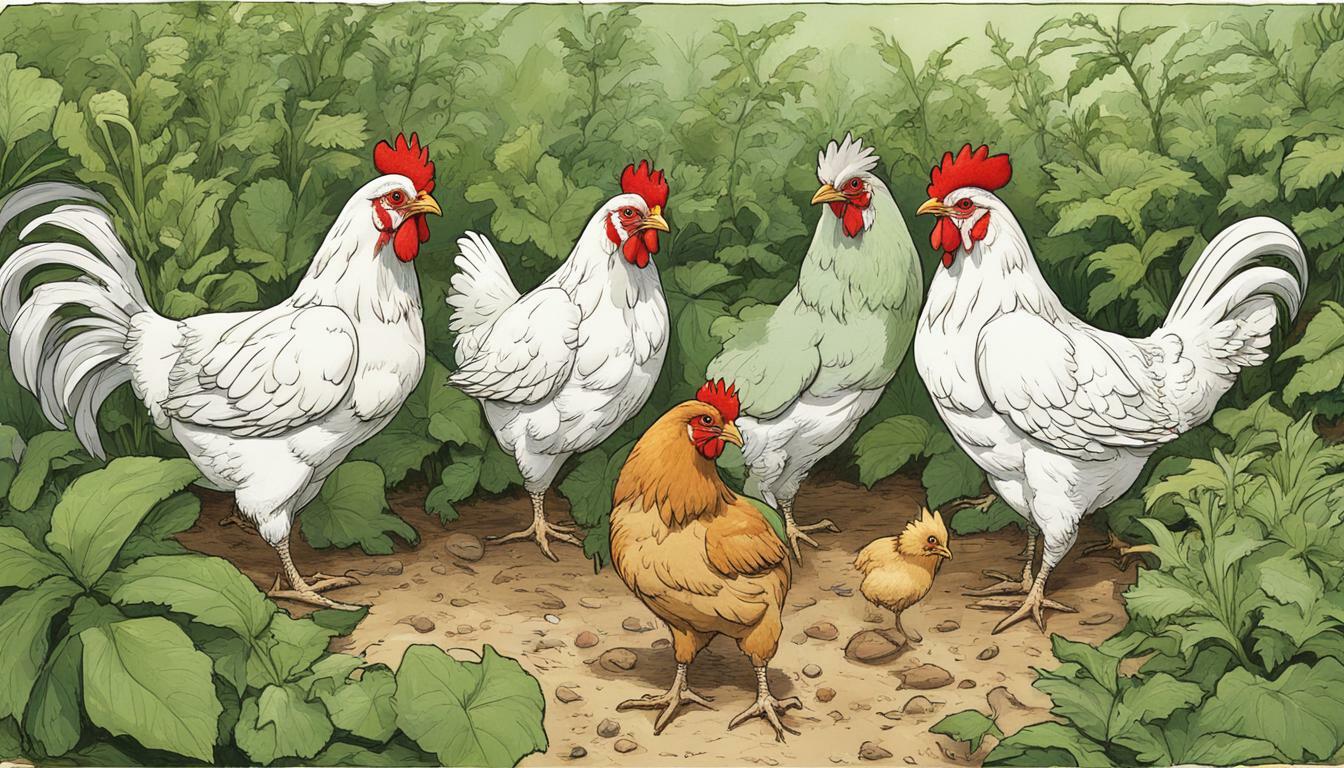Can Chickens Eat Ferns? Discover Their Dietary Safety

Table of content:
- Are Ferns Safe for Chickens to Eat?
- What Types of Ferns Can Chickens Eat?
- Do Chickens Like Eating Ferns?
- What Are the Benefits of Feeding Ferns to Chickens?
- How Much Fern Can I Feed My Chickens?
- Will Ferns Hurt Chickens if Eaten?
- Can Too Many Ferns Make Chickens Sick?
- Should Ferns Be a Regular Part of a Chicken’s Diet?
- Is There Anything I Should Know Before Feeding Ferns to My Flock?
- Conclusion
Ferns are common plants that can often be found growing in many backyards and gardens. For chicken owners who let their flock free range, a question may arise – can chickens eat ferns? Let’s explore this topic in-depth.
Are Ferns Safe for Chickens to Eat?
This is the most important question to address first. The short answer is yes, most types of ferns are safe and healthy for chickens to eat. Ferns contain nutrients like vitamins, minerals and antioxidants that can benefit chicken health.
However, there are a few varieties of ferns to avoid as they may be toxic to chickens:
- Bracken ferns – These large ferns contain thiaminases which can cause a vitamin B1 deficiency in chickens if over consumed.
- Ostrich ferns – Contain an enzyme called pterosin that can cause anemia and liver damage.
- Australian tree ferns – Produce sap that contains cytotoxins, which can be poisonous.
As long as chickens don’t overindulge on these specific varieties, most ferns are safe and nutritious additions to their diet when eaten in moderation.
What Types of Ferns Can Chickens Eat?
Many types of ferns are perfectly fine for chickens to eat. Here are some of the most common, safe varieties:
- Hay-scented ferns – Also called wood ferns. Abundant in forests and wooded areas.
- Lady ferns – Lacy, light green ferns that grow well in shade.
- Evergreen wood ferns – Hardy ferns native to the Pacific Northwest.
- Common polypody – Small, hardy ferns often found growing on rocks or tree trunks.
- Christmas ferns – Dark green, hardy ferns that thrive in winter.
- Common maidenhair – Delicate ferns with fan-shaped fronds.
- Cinnamon ferns – Reddish-brown spores give this fern its name.
- Interrupted ferns – Grow in a vase shape with arching fronds.
- Royal ferns – Large, impressive ferns that can reach 6 feet tall!
As you can see, there are many safe, edible fern varieties for chickens to enjoy if they happen to forage upon them.
Do Chickens Like Eating Ferns?
Chickens seem to enjoy eating ferns and will seek them out on their own. The tender young fiddleheads and shoots are tasty to chickens.
The lacy fronds also provide a fun, leafy texture for chickens as they forage and peck. Ferns offer a nice change from grasses and weeds.
For confined chickens without access to natural forage, collecting and providing small bunches of safe ferns can be a treat they appreciate. It satisfies their natural urge to graze and nibble fresh greenery.
Watch your flock’s preferences. If they eagerly consume certain ferns, keep providing those types. Avoid varieties they refuse after the initial taste test.
What Are the Benefits of Feeding Ferns to Chickens?
Ferns offer some nice nutritional perks. Here are some of the benefits of adding ferns to your chickens’ diet:
- Vitamins – Ferns contain vitamin A, vitamin C and B-complex vitamins.
- Minerals – Provides beneficial minerals like calcium, magnesium and potassium.
- Antioxidants – Contains protective plant compounds like carotenoids and polyphenols.
- Fiber – The fibrous fronds promote healthy digestion.
- Moisture – Succulent fronds provide hydration.
- Foraging entertainment – Chickens enjoy pecking at fresh ferns as they free range.
The moderate nutrient content and hydration makes ferns a healthy supplement, without overfeeding any particular nutrient.
How Much Fern Can I Feed My Chickens?
Moderation is key when feeding ferns to chickens. Too much of certain varieties could cause toxicity or vitamin deficiencies. Follow these tips:
- Limit bracken ferns – Very high in thiaminase, so feed sparingly.
- Provide ferns as a supplemental feed – Not a major staple of the diet.
- Chop or shred – Cutting large fronds into bite-size pieces prevents over consumption.
- Feed ferns 2-3 times per week – For confined chickens, occasional treats prevent boredom.
- Remove any uneaten ferns – Don’t allow wilted ferns to accumulate and rot.
- Make sure adequate feed and water is still provided – Do not replace balanced feed with ferns.
- Watch for changes in droppings – Reduce fern amount if stools become loose.
By limiting the quantity and frequency of fern treats, you can safely provide your flock with their benefits.
Will Ferns Hurt Chickens if Eaten?
As mentioned, most ferns are harmless and healthy in moderation. However, potential risks include:
- Vitamin deficiencies – Bracken fern can interfere with vitamin B1 absorption if overeaten.
- Internal toxicity – Tannins in some fern varieties could cause toxic buildup from excessive intake.
- Diarrhea or digestive upset – Eating too much of any new treat, even healthy greens, can cause loose stools.
- Reduced nutrition – Replacing a significant part of a balanced diet with any single ingredient can lead to deficiencies long-term.
- Reduced feed intake – Chickens overindulging in ferns may feel less hungry and eat less feed.
The key is moderating fern consumption and observing chickens for adverse reactions. Use ferns as a supplemental treat, not a main diet component.
Can Too Many Ferns Make Chickens Sick?
Yes, it’s possible for chickens to get sick from eating too many ferns. Here are some symptoms to watch for:
- Diarrhea – Excess ferns may loosen stools or cause digestive irritation.
- Listlessness – Lethargy or droopy appearance may indicate toxicity.
- Poor egg production – Can signal nutritional deficiency or illness.
- Ruffled feathers – May indicate the hen doesn’t feel well.
- Weight loss – Could result from reduced concentrate feed consumption.
If you observe any of these signs soon after increasing ferns, reduce or discontinue fern access. The symptoms should resolve as long as permanent damage was not done.
Should Ferns Be a Regular Part of a Chicken’s Diet?
Ferns should not be a core daily part of a balanced diet, but more of an occasional treat. 2-3 times per week is sufficient for confined chickens to reap benefits without risking toxicity.
Free-ranging chickens will naturally nibble on small amounts of foliage, including ferns, as they explore. This foraging behavior provides wholesome variety and is fine.
But fern fronds lack key vitamins and protein needed for optimal health. Significant daily fern intake could lead to malnutrition if concentrate feed intake drops.
Remember ferns are a supplemental snack, not a main meal. Give small bunches a few times a week for healthy moderation.
Is There Anything I Should Know Before Feeding Ferns to My Flock?
Here are some important tips to keep in mind:
- Identify ferns on your property and research if they have any toxicity concerns. Avoid types like bracken and ostrich ferns.
- Start with very small servings of new fern varieties to see if the chickens like them and tolerate them well.
- Chop large fronds into smaller pieces so chickens don’t grab and overeat whole fronds.
- Introduce new treats slowly and one variety at a time so issues can be identified.
- If foraging freely, be sure adequate space, shelter, feed and water is still provided.
- Monitor chicken health and watch for any concerning symptoms of illness. Reduce ferns if any issues arise.
- Make sure ferns have not been treated with herbicides or grown in contaminated soil. Only offer organic, untreated plants.
Following basic precautions helps ensure fern grazing remains a healthy supplemental activity the flock enjoys safely.
Conclusion
In conclusion, most ferns are safe for chickens to eat and provide some beneficial nutrition. Many common varieties like hay-scented or lady ferns make great occasional treats. Limit intake of any single fern type and avoid known toxic kinds like bracken ferns. Offer small bunches 2-3 times per week along with their normal feed for a healthy addition of vitamins, minerals and plant antioxidants. Free-range foraging on ferns is fine in moderation as part of varied vegetation. Follow basic safety precautions, and enjoy watching your flock nibble on nature’s salad bar of tender fern fronds!
Welcome. I’m Adreena Shanum, the proud owner of this website, and I am incredibly passionate about animals, especially poultry. I founded adreenapets.com as a labor of love, stemming from my desire to share my knowledge and experiences with poultry enthusiasts worldwide.




